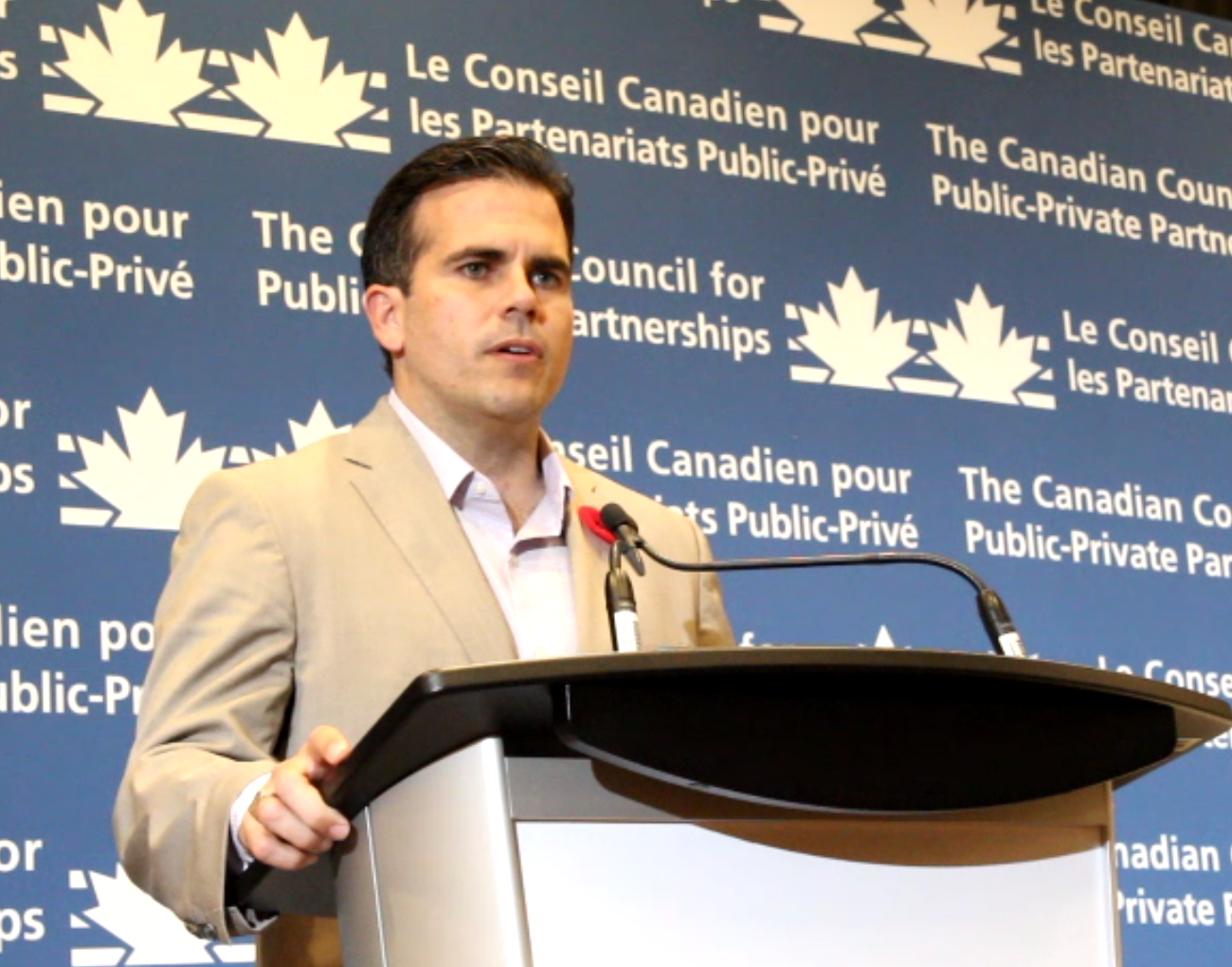Puerto Rico “is open for business” after Hurricane Maria last year, declared the Governor of Puerto Rico at a business gathering in Toronto a few days ago.
At the Canadian Council for Public-Private Partnerships’ national conference on November 5, Ricardo Rosselló used the same words for mass privatization of the public domain that are broadcast by Doug Ford’s government in Ontario.
Rosselló said his administration is continuing earlier efforts to aggressively scale back public services on the 9,000-square-kilometre island, rush forward with the largest pipeline of public-private partnerships, known as P3s, in the U.S. and provide huge tax breaks for investors in P3s via mechanisms like ‘opportunity zones’ that will cover 97 per cent of the island. All of this is being primed with up to $140 billion in grants from the U.S. government.
He told the audience — which included government officials and staff, politicians, lawyers, and representatives of construction companies, financing firms and pension funds from Canada and around the world — exactly what’s in it for them in the rebuild of everything from schools to airports.
“Government needs to sort of get out of the way, and allow for innovation and the private sector to look for these ideas…. So you have all that with Puerto Rico. And, of course, opportunity zones will give you or an investor in your pocket the highest return on your investment.”
This message was greeted with great enthusiasm by Rosselló’s audience.
Susan Harper, consul-general of Canada in Miami, whose territory includes Puerto Rico, said in her introductory remarks to Rosselló’s speech, “Never has a government had a better opportunity to ensure that a serious crisis does not go to waste.”
And Canada’s minister of Infrastructure and Communities, François-Philippe Champagne, made a point in his opening keynote address at the conference to give Rosselló a warm welcome.
“It’s a great honour, governor, that I have the chance to exchange with you about infrastructure needs,” Champagne said. “Obviously, we have followed as Canadians with much interest, and I would as the international community, (what’s happening) in Puerto Rico. And you probably feel that you’ve got a lot of friends here in this room. And certainly we want to play a role. I think the audience wants to play a role in ensuring a great future for the good people of Puerto Rico.”
This is exactly the problematic paradigm that Naomi Klein describes in ‘The Battle for Paradise: Puerto Rico Takes on the Disaster Capitalists.’
Klein’s analysis describes locals’ efforts to rebuild the island based on their needs and central involvement, rather than those of international big business and finance. The Puerto Rican organizations JunteGente and Professors Self-Assembled in Solidarity Resistance (PAReS) are leading this struggle.
In a news conference after speaking, Rosselló was asked about local resistance.
“I reject the notion that people are against some of these policies,” Rosselló replied. “Listen, some of these policies are transformational, (so) you’re going to get some support and you’re going to get some folks that reject it. But not withstanding, I am very much convinced that the people of Puerto Rico do want to see this change occur, and that they are optimistic about what we can do together.”
He also said his government would try as much as possible to have the reconstruction work be “locally driven” “so that we can drive that capital ($140 billion from the U.S. government) to be used by Puerto Ricans and to stay in Puerto Rico.”
This contrasts with his speech, which brimmed with words like “opportunity” and “incentives,” and emphasized the diminishing size of government and taxes in Puerto Rico.
“There’s going to be an enormous opportunity for anyone who comes to Puerto, either to invest or to be part of the rebuild process as a P3 partner. … Puerto Rico has the laws that make our island the most competitive jurisdiction in the United States to export services. Or, to export certain goods,” he said in his keynote address.
“We also have the most competitive tax treatment for investors of a certain wealth that decide to move to Puerto Rico…. We’re moving forward a severe reduction in bureaucracy that has hampered economic growth historically within our island, and other efforts that are ongoing, such as tax reform — to reduce the rates — as well as incentives… so that we can establish a return on investment for folks … for investment in certain sectors in Puerto Rico.”
JunteGente’s Manifesto of Emergency and Hope stresses that this approach is being taken at the cost of gross injustices to Puerto Ricans.
“The gigantic crisis we are facing is not Hurricane Maria’s doing, but the result of decades of erroneous public policies and the acts of corrupt politicians who, instead of using the powers delegated upon them to protect the public’s well being, have opted to line their pockets — all the while benefiting their friends and other major financial interests….
“The disaster capitalist agenda is working against us. If we do not stop the plans of the government, the board, the bondholders, the vultures, and the ultra-rich puertopians, they will sell and hoard everything within their reach, and we will lose the necessary foundations to have the country we want. This is why, in the face of this emergency, we are calling for hope. We are encouraging all to join efforts and resist, so that we can transform our nation. The time is now.
Photo: Puerto Rico Governor Ricardo Rosselló speaks to media in Toronto on November 5, 2018, at the 26th Annual CCPPP National Conference on Public-Private Partnerships. Photo: Rosemary Frei



